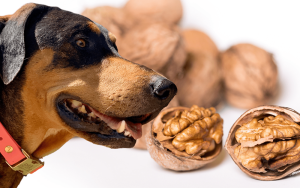Can Dogs Eat Sweet Potatoes? The Ultimate Guide to Health Benefits and Risks

Introduction
As pet owners, we’re always looking for ways to improve our dogs’ diets and provide them with healthy, tasty treats. One of the most popular human foods that often comes into question is sweet potatoes. These nutrient-packed vegetables are a staple in
many households and are known for their health benefits. But when it comes to our furry friends, the question arises: Can dogs eat sweet potatoes?
In this comprehensive guide, we’ll explore whether sweet potatoes are safe for dogs to consume, the health benefits they offer, potential risks, and how to incorporate them into your dog’s diet safely. Whether you’re considering offering sweet potatoes
as a treat or adding them to your dog’s meals, read on to find out all you need to know.
Are Sweet Potatoes Safe for Dogs?
Yes, sweet potatoes are generally safe for dogs to eat, and they can be a healthy addition to their diet when prepared correctly. In fact, many veterinarians and pet nutritionists consider sweet potatoes to be a nutritious, wholesome food option for dogs.
Packed with essential vitamins, minerals, and fiber, sweet potatoes provide a number of health benefits for dogs when served in moderation.
However, there are a few important considerations to keep in mind before offering sweet potatoes to your dog. Not all dogs may tolerate sweet potatoes the same way, and it’s essential to follow proper preparation methods to avoid any potential risks.
Let’s break down why sweet potatoes can be beneficial for your dog, as well as how to ensure they’re safe to consume.
Nutritional Benefits of Sweet Potatoes for Dogs
Sweet potatoes are a powerhouse of nutrients, and they offer several health benefits for dogs. Here’s a breakdown of what makes them a great choice:
1. Rich in Vitamins and Minerals
Sweet potatoes are an excellent source of vitamin A, an essential nutrient that supports eye health, immune function, and skin health. They also provide a good amount of vitamin C, which plays a key role in maintaining a healthy immune system and aiding
in tissue repair.
Additionally, sweet potatoes are rich in essential minerals like potassium, which helps maintain healthy muscle function, and magnesium, which supports your dog’s bone health and nerve function.
2. High in Fiber
Sweet potatoes are loaded with dietary fiber, which can be very beneficial for your dog’s digestive health. Fiber helps regulate bowel movements, supports healthy digestion, and can prevent constipation or diarrhea in dogs. For dogs that suffer from sensitive
stomachs, incorporating fiber-rich foods like sweet potatoes can help maintain a healthy gut.
3. Low in Fat
Sweet potatoes are naturally low in fat, making them an excellent choice for overweight or obese dogs. They provide a satisfying, filling option without contributing to unnecessary weight gain.
4. Antioxidant Properties
Sweet potatoes are packed with antioxidants, which help combat oxidative stress and reduce inflammation. This is particularly beneficial for dogs with joint issues or inflammatory conditions like arthritis. Antioxidants help neutralize free radicals,
potentially preventing chronic diseases and supporting overall health.
Can Sweet Potatoes Help With Weight Management in Dogs?
Yes! Sweet potatoes can be an excellent food for dogs that are overweight or prone to obesity. Because sweet potatoes are low in fat and calories while being high in fiber, they can help dogs feel fuller for longer without overloading them with extra
calories. The fiber also aids in regulating blood sugar levels, which can prevent insulin spikes and crashes.
However, like with all treats and additional food, portion control is key. Offering sweet potatoes as a supplement to your dog’s regular meals, rather than a primary food source, ensures that their nutritional needs are met without the risk of overfeeding.
How to Prepare Sweet Potatoes for Dogs
Although sweet potatoes are safe for dogs to eat, proper preparation is crucial. Here’s a step-by-step guide to preparing sweet potatoes for your dog:
1. Cook the Sweet Potato Thoroughly
Raw sweet potatoes can be tough for dogs to digest and may even cause stomach upset. Always cook the sweet potato before feeding it to your dog. You can bake, boil, or steam the sweet potatoes. Baking is often the easiest method, as it preserves most
of the nutrients while making the sweet potato soft and easy for dogs to chew.
2. Remove the Skin
While sweet potato skin is not toxic to dogs, it can be difficult for them to digest. To avoid any digestive issues, remove the skin before serving the sweet potato. Peeling the sweet potato also makes it easier for your dog to consume and reduces the
risk of choking.
3. Avoid Adding Seasonings or Additives
When preparing sweet potatoes for your dog, refrain from using butter, salt, or any other seasoning. These additives can upset your dog’s stomach and may lead to health issues. Stick to the natural flavor of the sweet potato, as it’s both safe and beneficial
for your dog.
4. Serve in Small, Manageable Portions
To avoid overfeeding, serve sweet potatoes in small portions that are appropriate for your dog’s size and dietary needs. Start with a small amount to ensure your dog tolerates the food well, and gradually increase the portion size if there are no adverse
reactions.
Potential Risks and Side Effects of Sweet Potatoes for Dogs
While sweet potatoes are safe for most dogs, there are a few potential risks and side effects that owners should be aware of:
1. Upset Stomach
Some dogs may have difficulty digesting sweet potatoes, especially if they have a sensitive stomach. This could lead to symptoms like vomiting, diarrhea, or bloating. If your dog shows signs of digestive distress after eating sweet potatoes, reduce the
portion size or eliminate them from their diet entirely.
2. Kidney Issues in Certain Dogs
Sweet potatoes are high in potassium, which is typically beneficial for dogs. However, in dogs with kidney disease, a high-potassium diet can exacerbate the condition. If your dog has kidney issues or any other chronic health concerns, it’s best to consult
with your veterinarian before adding sweet potatoes to their diet.
3. Glycemic Index
Sweet potatoes have a moderate glycemic index, which means they can cause a rise in blood sugar levels. This may be a concern for dogs with diabetes or those at risk of developing it. If your dog has diabetes, it’s essential to consult your veterinarian
before feeding them sweet potatoes or any other high-carbohydrate food.
4. Choking Hazard
If you’re serving sweet potatoes in large chunks or slices, there’s a risk of choking. To reduce the risk, ensure the sweet potato is cut into small, bite-sized pieces. You can also mash the sweet potato for smaller dogs or those with dental issues.
How to Incorporate Sweet Potatoes Into Your Dog’s Diet
Now that you know sweet potatoes can be a healthy addition to your dog’s diet, here are a few ideas on how to incorporate them into their meals:
1. Sweet Potato as a Standalone Treat
You can serve sweet potatoes as a standalone treat, whether as small pieces or mashed. These make for a nutritious, low-fat snack that’s easy to prepare. You can even freeze small portions of mashed sweet potatoes into dog-friendly ice cubes for a refreshing
summer treat.
2. Add to Homemade Dog Food
If you make your dog’s food at home, sweet potatoes can be a great ingredient to add to their meals. Simply cook and mash the sweet potato, then mix it with their usual protein and vegetables. This boosts the nutritional value of their food and provides
variety in their diet.
3. Incorporate Into Commercial Dog Food
Many high-quality commercial dog foods include sweet potatoes as an ingredient. If you’re feeding your dog kibble or wet food, you can check the ingredient list to see if sweet potatoes are already included. If not, you can supplement their meals with
a small amount of cooked sweet potato.
4. Use as a Training Treat
Sweet potatoes are also a great option for training treats. You can dehydrate slices of sweet potato to make homemade jerky treats that are perfect for rewarding your dog during training sessions.
Conclusion: Sweet Potatoes for Dogs
In conclusion, sweet potatoes can be a healthy, nutritious addition to your dog’s diet when prepared and served properly. They offer a variety of health benefits, including supporting digestion, providing essential vitamins and minerals, and even helping
with weight management. However, as with any food, it’s important to monitor your dog for any adverse reactions and consult your veterinarian if you have any concerns, especially if your dog has preexisting health conditions like diabetes or kidney
disease.
By following the proper preparation methods and serving sweet potatoes in moderation, you can treat your dog to a tasty and healthy snack that’s both enjoyable and beneficial for their overall health.






